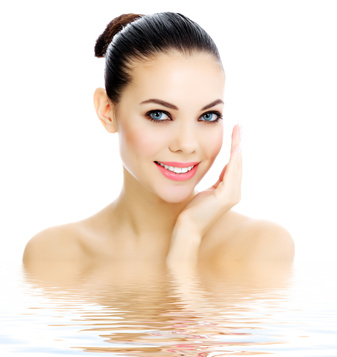
- Eating organic foods is key to optimal health. Acne can be an embarrassing condition for teenagers and adults alike.
- According to Mayo Clinic, “Acne is a skin condition that occurs when your hair follicles become plugged with oil and dead skin cells.”
- Research shows that the links between fatty and carb heavy foods and acne may not be a myth.
- When healthy organic foods become part of your diet, acne can be controlled. It takes a lifestyle change It is equally important to stay away from acne causing foods.
- Let’s take a look at some healthy tips to control acne.
- Avoid starches, carbs, sugars, grains, and gluten:
- Heavy foods like these have been shown to cause acne.
- Gluten is one of the biggest culprits. Replace these unhealthy foods with fruits, vegetables and healthy fats like avocados, coconut oil, olive oil, and nuts.
- Tip: Try eating more quinoa pasta instead of rice and if you have sugar cravings eat fruits.
- Use coconut oil:
- This healthy oil is a natural moisturizer, use it on your face and neck.
- It has antifungal, antimicrobial, and antibacterial properties, which get rid of toxins and bacteria on the skin and make it clearer. It is also full of antioxidants, which provide anti-aging benefits.
- Tip: Use on your face and neck every other day at night.
- Eat more cucumbers:
- They can heal and clear up skin when used internally or externally.
- Eating organic cucumbers is great for the skin because they are full of water (about 95% water) to moisturize the skin, and have anti-inflammatory properties, which keep skin clear.
- Tip: Add cucumbers to your favorite smoothie recipe or make a mint infused water.
- Drink plenty of water:
- We always say that water is life, and it is so true. When you drink plenty of water, your body stays hydrated. Plus, water helps flush out toxins and aids the body in removing dead skin cells.
- Tip: Make infused water and drink 8 glasses a day.
- Exercise and de-stress:
- When you exercise, toxins are flushed out through the sweat, and you feel great. Stress is a major factor for acne, and exercise is a natural stress reliever. Other great ways to de-stress are yoga and meditation.
- Tip: Try including yoga and moderate exercise in your daily schedule.
- Eat omega-3 fatty acids:
- These potent fatty acids are renowned by health experts for their antioxidant and anti-inflammatory benefits. Fish oil and wild Alaskan salmon are the best ways to get omega-3 fatty acids into your diet.
- Before selecting an organic fish oil supplement, read our tips first.
- Make fresh juices a habit:
- Consuming fresh homemade juices with anti-inflammatory organic foods is a delicious way to prevent acne.
- Try our acne relief juice recipe, which is packed with healthy organic foods like carrots, oranges, and ginger.
- Use honey as a face mask:
- It gets rid of pimples and disinfects the skin.
- A DIY mask with honey will help heal and brighten up skin from the outside.
- Tip: Apply 1 Tbsp of raw honey to your face every other day for 10 minutes. Rinse and spray your face with Witch Hazel.
- Apply lemon juice:
- The acids in lemons have antibacterial properties that can help remove germs from the skin and can remove dead skin cells.
- Tip: Make a solution of 1 cup of water and 2 Tbsps of lemon juice. Apply to your face daily before you moisturizer.
- You can keep the solution in the refrigerator up to 3 days.
- Try oregano oil:
- This potent essential oil has antimicrobial, antibacterial, and anti-inflammatory properties. It is natural and safer than harsh chemical products.
- Tip: Apply one drop of oregano oil on the affected area.
- AS ALWAYS: Check with your health practitioner before you change your diet. These organic foods and tips are not meant to replace any treatment or drugs you are taking.
-
- The relationship between heavy foods and acne.
- For an acne relief juice.
- For a radiant skin aloe vera drink.
- For a radiant skin smoothie.
- Clear skin naturally with fresh organic foods and herbs.
- Gluten: The hidden danger.
-
- REFERENCES:
- 1. “Stop Eating Gluten and Grains If You Have Acne.” Mercola.com. Mercola.com, 16 June 2014. Web. 20 June 2014.
- 2. “Acne Vulgaris.” JAMA Network. JAMA Network, Dec. 2002. Web. 20 June 2014.
- 3. “Acne.” Mayo Clinic. Mayo Foundation for Medical Education and Research, n.d. Web. 18 June 2014.



















2 Comments